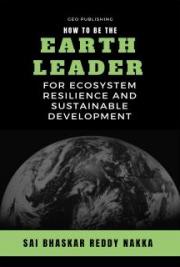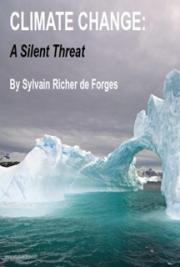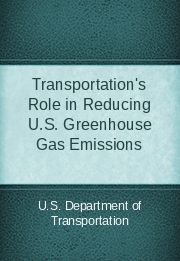|
But the report
also mentioned safety concerns, the threat of weapons proliferation and waste
disposal as problems.
Energy security
and oil prices are also key concerns for governments. Crude prices have more
than tripled in three years, while countries across Southeast Asia are seeing
breakneck economic growth.
Greenpeace's Shailendra
said energy efficiency and renewable energy such as solar and wind can meet
half of the world's energy needs by 2050 while cutting global carbon dioxide
emissions by almost 50 percent.
Piyasvasti said
that for Thailand, renewables were part of the plan but would not meet their
requirement of 1,400 more megawatts of energy per year.
"I think
that new projects in renewable energy (will produce) 1,400 megawatts over the
next five years," he said, adding that Thailand aims to have their first
nuclear plant up and running by about 2020.
Indonesia,
meanwhile, said it plans to reduce its dependency on oil from 24 percent of
total energy supply now to 3 percent in 2025, when it aims to generate 4
percent of energy from nuclear power.
So far, the only
country in Southeast Asia that has built a nuclear power plant is the
Philippines -- with chaotic results.
Its 2.3 billion dollar Bataan nuclear plant was closed in 1987 without
generating one watt of electricity after it was declared unsafe and
inoperable.
Shifting
skeptical public opinion in favor of nuclear energy also remains a mammoth
task, experts say.
"Public
awareness of the nuclear risks seems to outweigh its awareness of the
benefits," said Hans-Holger Rogner, of the International Atomic Energy
Agency (IAEA).
|
·
* * * * * * *
25. Sunshine is a Great Disinfectant
Besides being true in a literal
sense, that chapter title can also apply to the spoken word. When a debate is open, with no holds barred
(i.e. out in the sunshine), then the truth is a lot more likely to shine
forth.
In the mid-1960’s, San Francisco was the
epicenter of the ‘Flower Power’ movement. A lot can be said ‘pro and con’ about
those times, but most people will agree it was a time and place which enabled
young people to open up to one another, and to new ideas, more readily than
they normally would. There was more
going on than pot parties, acid-rock, bell-bottoms, and Hare Krishna - though
some people say, ‘if you can remember the sixties, you weren’t there.’
Stewart Brand was a young man in
the San Francisco bay area who decided to put together a unique magazine. He called it ‘The Whole Earth Catalogue’
(WEC) The idea was basically for it to
serve as a networking tool among people interested in alternative building,
tools, design and power.
At that time, there was no such thing as a
personal computer, and the internet was 30 years in the future. A mouse was a
little rodent which scurried under kitchen cabinets, multi-tasking was
something a mother of twins did, and a browser was a cow in the field. Those
were ancient times when the only search engine in your life was your mother or
your wife (where did I put my gloves?).
The Whole Earth Catalog’s back cover was
all black with a small photo of the Earth in the middle. Never before had
anyone seen a photo of the Earth, and its smallness in the big black page gave
a sense of the uniqueness and vulnerability of the only planet we’ve got. It also showed wispy banks of clouds over
brown and green continents, and over blue pools of water – indicating
life. Earth is the only planet we have,
and its living part is very thin – thinner than the skin of a grape compared to
its fruit.
Nearly every concept inside the Whole
Earth Catalogue was unique at the time – and none was fictional. For many, it was their first exposure to
practical applications of solar energy, to domes, to zomes, to wind energy and
other innovations. Granted, it’s not as
though many of those concepts were brand new (we use solar energy every time we
hang clothes out to dry), but rather the presenting of the info in a casual
manner – often with hand lettered scripts and hand-drawn diagrams on grainy
paper.
It was all black and white, and many
of the photos were non-slick, non-commercial.
Altogether, it was fun and informative reading, and if you were between
the ages of 15 and 35, you felt you were getting abreast of what your creative
peers were developing.
The Whole Earth Catalog spawned a
periodical magazine and web site, but it also inspired an annual fair in nearby
Davis California, called (not surprisingly) The Whole Earth Fair (WEF). The venue was a large outdoor space at the
University of California, Davis. The
same spirit of innovativeness and experimentation imbued the Whole Earth Fair –
and each year hundreds of vendors and thousands of people would come to play
and eat and dance, and learn about innovative new things.
If you’ve read this far and wonder where
this is going, here it is: Let’s have a
Whole Earth Fair for Thailand. Even if
it’s a one time event, there’s never been a better time. The focus could be alternative energy. Oh ok, in the name of fairness, we’d allow
nuclear proponents (and boosters of coal, and LPG, etc) to strut their
stuff. But the main idea would be to get
as many proponents of alternative energy to display their wares and share
ideas.
It would be a totally win/win
situation. The organizers would not have
to pay any of the vendors to come to display – as the vendors would jump at the
opportunity to showcase their innovations.
Fairgoers would get a golden opportunity to see new things up-close –
and to ask questions. Just as good as
any other attributes, would be the effect on aspiring Thai inventors.
Quick, name one innovation or invention by
a Thai person in the energy field. Sad
to say, there are none. The reasons are
many, but it’s not because Thais are not as bright as others. Case in point: One of the world’s top Scrabble experts is a
young Thai man. Scrabble uses the
English language, and English isn’t even that guy’s first language - he studied
a dictionary to memorize the spellings of words! So don’t let anyone tell you Thais are not
potentially as bright as anyone else.
One big reason something like a Whole Earth Fair in Thailand would be
great for Thais, especially innovative thinking young people, is the
inspiration factor. There’s no better
way to learn than hands-on exposure – especially shoulder to shoulder with dem
dats doin – where questions and suggestions can be bandied back and forth. Oh, and it will need to have a large outdoor
venue – in order to display solar designs that will be there.
Thailand has big annual fairs for cars,
for gifts, for manufacturing machinery, for books, for printing, ….but nothing
for alternative energy. Suggested name: Jing
Jing Fair. “Jing jing’ is the Thai
phrase for ‘really!’ or ‘for sure’ – it’s spelt with the Thai ‘r’ like ‘jring,’
but the ‘r’ is silent. The fair doesn’t
need the word Thailand or Asia in the name, because that would limit its scope
– and frankly, Asia is behind the leaders, as regards alternative energy
innovations. And that’s another reason
for the fair:
Currently, Asian countries (India, China,
Indonesia, Japan, Korea, Vietnam, Thailand and others) are looking longingly at
nuclear power generators. They need to
see the out-dated folly of their ways.
Let’s hope they get smart before they get burned – and I mean that
literally as well as figuratively.
Radiation sickness is physiologically burning – just ask the survivors
of Hiroshima or Nagasaki.
·
* * * * * * *
26. Dost Thou Protesteth Too Much?
I witnessed my first successful protest
when I was eight years old – at a military base in Virginia. There was a
grammar school there. One Sunday, the
principal of the school invited all the children to bring their parents to an
open-air hall for a fund raising auction.
The last item to be auctioned was the principal's own caged bird.
He introduced the item; "I caught
this raptor on my farm in Tennessee four years ago. He's a great pet. Starting
bid, $5."
I was sitting next to Suki, a school mate,
who was one year older. Suki immediately shouted, "Let it go!"
My strict 'obey you elders' upbringing
coupled with extreme shyness, caused me to blush and feel embarrassed at my
friend's brashness.
The school principal, a respectable elder
man, kindly gave several reasons why the bird should not be let out of the
cage.
"Let it go free!" Suki called
out, louder than before. Right away,
voices called out to support her plea. There was no doubt about the sentiments
of the community crowd in that room.
Without another word, the schoolmaster
slowly held the cage aloft and opened the little wire door. The bird hesitated a moment, then hopped to
the opening, sprung up and flew off – but not without first doing a swift
circuit within the room.
A roar went up from the crowd. Even the
principal looked pleased.
That was an inspiration for kid to
witness. It had a young person, who
would ordinarily be disenfranchised from decision making, openly challenging an
elder person of authority. That same authority could conceivably discipline her
later, for insubordination. The initial
voice of protest had conviction – and Suki wasn't afraid to speak up a second
time, and hold her ground, even when the authority figure publicly dismissed
her concern.
The scene had the added dynamic of common
citizens getting their concerns sparked.
They wound up raising their voices in support. Some of the others at the
auction may have had thoughts of freeing the bird, but none were initially
willing to express those sentiments out loud.
The adamant stand of one kid inspired most of the attendees to stand as
one, and demand the bird be let free.
Even then, the principal could have
withdrawn the item and kept his caged bird, or he could have been adamant, and
gone ahead to auction it off.
The other protest took place many years later in Thailand. As happens with towns and cities in Thailand,
places to dump garbage are getting scarce.
My adopted town of Chiang Rai was having that that issue. Garbage trucks would sometimes be seen
cruising back roads, their drivers trying to find a place dump their loads
clandestinely. Other times, the
driver’s boss would find a landowner to accept a few hundred baht to allow
garbage to get dumped on his property.
I had secured some property just NW of
Chiang Rai - which was located a Km down a dirt road. An absentee neighbor opposite my property had
taken the garbage money. Of course, no
one else on the road had an inkling of the deal until long lines of garbage
trucks suddenly showed up. To exacerbate the situation, it was the beginning of
rainy season, so at any given time, several trucks were stuck in the mud, and
blocking the narrow road.
Right away, many of the residents formed a
protest. The parcels along that road
were large, so there weren't many residents - perhaps 30 in all. One guy took
his medium sized truck and positioned it sideways at the point where our road
tee’d off from the highway - thereby blocking entry to the garbage trucks,
which were then arriving every half minute or so.
I went to get my seven workers who were
helping build a house - in order to add to the number of protesters. When I returned to the corner, ten minutes
later, the blocking truck had been moved, and the protesters were off to the side
speaking with the boss of the garbage trucks. The trucks had resumed running
down the dirt road unhindered. I was
annoyed that the protest had petered out so quickly.
I didn't speak Thai at the time (am still
elementary level) but someone explained to me that the negotiations were aiming
toward an agreement where the garbage trucks could continue for another two
weeks. After that, the boss would see to it that gravel was applied to the
worst affected parts of the road.
Needless to say, the garbage trucks
continued running the road for nearly a month, and just a small bit of gravel
was applied.
The lesson here is; "negotiate from
strength." When the protesting
residents saw the big boss man arriving in his expensive vehicle, it was
evident he was a power broker. When the boss
saw his trucks backed up, he immediately demanded the protestors withdraw -
which they did. The protestors weakened
their position by removing the blocking truck and support people.
If the protestors had more of the steadfast
spirit of little Suki, the garbage boss would have had to do one of two
things: Either consider strong-arming
the protestors out of the way (perhaps with his hired thugs or with police), or
the boss would have had to negotiate with an empowered group. As it was, the boss diluted the protestors’
strength right away, and therefore strengthened his own position. In that
situation, the boss wanted, above else, to keep the trucks moving, so his
operation would not lose any money.
Not surprisingly, the above little stories
apply to the current crossroads that Thailand is facing. Will Thailand take the fork in the road that
leads to nuclear power plants, or will it take the cleaner, safer, cheaper
route toward reasonable power generation facilities. If Thailand takes the reasonable route, it
won’t happen without protests. The
‘powers-that-be’ have shown themselves to be deeply entrenched in favor of
nuclear.
For Thai people who love their country and
have high hopes for their offspring – this is an important juncture. The first thing Thais need to do is garner
information. The info is available, even
for those without an internet connection.
They can get informed, not only on sensible alternatives to nuclear, but
also to what nuclear power generation is about.
They can also hear what EGAT and its supporters have to say.
The next thing needed, which is just as
important, is to develop the conviction to do what’s right. Much as the little girl, Suki, mentioned in
the earlier paragraphs of this chapter, that conviction has to be strong enough
for the individual to stand up to authority – and to maintain that stance for
as long as it takes. It won’t be easy,
but significant achievements are rarely easy.
Let’s hope the path to getting reasonable power generation for Thailand
won’t be blood-stained. In other words,
even with contentiousness - people with opposing views can discuss the issues
in a civil manner in an open forum.
Probably the best scenario would be a
popular vote on the topic – similar to the vote in 2007 on a new constitution
for Thailand. If the nuclear issue were
up for a nationwide vote, it is hoped the opposing sides won’t resort to dirty
tactics. That’s a big ‘hope’ as anyone
familiar with Thai politics knows how endemic vote-buying has become.
When I look at little children, I am
reminded of the adage, “hope springs eternal.”
Regardless of how cynical older people become as the years roll by,
their kids and grandkids pop out with a ‘clean slate,’ and it’s heartening to
see. It’s a bit like springbok (small
African deer) in a field. While the
adults graze and peer warily to the bushes for danger – the juvenile springbok
prance around with springs on their legs – as if bouncing on air.
As adults, it’s our responsibility to use
our acquired education, wisdom and wariness – to set the stage for a reasonably
safe and content life for our offspring.
In effect, we’re looking to the bushes for dangers, while our kids are
frolicking around.
Later, when we’re old or out of
the way, it will be our grown up kids who take the responsible roles, and so
on. Let’s nip the menace of nuclear in
the bud while we still can. If we hesitate, it will be too late. It’s the least we can do for our kids and
their kids.
Does the name Jim Whittaker ring a
bell? He gained notoriety in the early
1950’s for being the first American to summit Mount Everest. Years later, as head of a sports outfitting
business called R.E.I. (Recreational Equipment Incorporated), he spearheaded an
small environmental campaign. At the
time, his home and business were in Seattle, Washington state. There was a nearby lake which, because of its
nearness to the city, and its intrinsic beauty, had become popular with
revelers. Over the years, beer cans had been
thrown in the lake and trash was strewn about (yes, it’s not only Thais who
litter).
Mr. Whittaker organized a volunteer force
of mostly young people – to go out to the site and devote a full day to
cleaning up. Most of the volunteers were
combing the surrounding hills, picking up trash and setting up trash bins. Jim donned scuba gear, grabbed a net, and
went down repeatedly in to the lake to gather all sorts of garbage that had
been thrown there over the years. He was
a middle aged man at the time, and could have easily found an excuse for opting
out of such a yucky detail. He didn’t
gain anything monetarily from organizing the clean-up. It wasn’t a personal or business
promotion. The main things he gained
from that operation were possibly;
>>>> the satisfaction of cleaning up a
natural spot – and making it more pleasant for the next people.
>>>> setting an example for future visitors to
the lake - to be more responsible with their trash.
>>>> inspiring some of the young people on the
crew to do selfless acts of kindness in their daily lives – and perhaps instill
a greater sense of appreciation for the great outdoors.
For the average person, the easiest thing
to do, if they see or hear about something like a trashed park, is to wave it
away, and say something like, “Yes, some places are trashy, but that’s not my
problem. The people who throw trash
should be taught a lesson, blah blah blah.”
Avoiding things which are ugly, smelly or
uncomfortable is what people do – along
with explaining such things away, or figuring; ‘that’s someone else’s problem’
or ‘let the proper authorities deal with it.’
Rare people like Jim Whittaker are the exception, in that, when they see
a problem, they’re not afraid to ‘think outside the box’ to come up with a
solution. Even better than conjuring a
solution, is taking dynamic, non-confrontational action to effect positive
change.
* *
* * * * *
27. Corruption Hurts Ordinary Citizens
Large scale solar is a competitive
market. That allows for open competition
among many players and prices per Kw are falling month by month. That’s a different picture than the nuclear
power business, where just a few players are vying for multi-billion dollar
contracts. It’s easy to see how rife the
nuclear scenario is for price-fixing and collusion between a very few
companies. Plus it’s an ideal scenario
for back-alley pay-offs for officials involved with the bidding process –
things that Thailand is world renown for.
It’s doubtful that a large contract has ever been transacted in
Thailand’s recent history - without pay-off allegations. That would apply both
to ‘in-house’ contracts (with Thai companies) and those with international
involvement.
EGAT wants to build four nuclear
plants – which will entail the largest bunch of contracts ever awarded in
Thailand. No one familiar with business
practices in Thailand can seriously perceive of such contracts being
corruption-free. Some people
may wonder, “so what’s the big
deal if there are some under-the-table pay-offs?” That question goes hand-in-hand with many
peoples’ laissez-faire attitude that goes something like this; “There are
billions of baht earmarked for these projects, so what’s the big deal if some
government heavies, middle men, and some corporation bosses get pay-offs.”
Here are some reasons why
under-the-table pay-offs hurt ordinary citizens:
>>>>> Every baht that slips in to a VIP’s pocket,
is a baht added to the cost of the project.
Thai municipal projects are ultimately paid for by Thai taxpayers. Taxpayers pay even if there are outside loans
(World Bank, etc) - though doesn’t apply if the funds come from grants or
donations.
>>>>> Pay-offs don’t increase the quality of the
project – neither the construction, nor the expertise, nor whether the project
will meet its deadlines.
>>>>> Inspectors are and permit handlers are often
easy to influence with sufficient pay-offs.
If inspection is lax, then the end-product suffer. Example: After an earthquake in Taiwan, it
was found that a large recently-built shopping mall had an inferior concrete
foundation. The building toppled –
causing deaths and injuries. Upon close
inspection, it was plain that water-filled 5 gallon tins were placed within the
foundation when the footings were poured – in order to save on concrete. A few inspectors would have to be mighty
brave to stand up to combined pressure from government and mega corporations –
if there were a difference of opinion. A
few greased palms makes things go a lot smoother.
>>>>> As for bidding on contracts: The best way
is to have no collusion between bidding entities, no inside ‘secret’
information, and no spying.
Additionally, there should be no favoritism on the part of the powers
awarding the contracts, no switching conditions in mid-stream, and no
pay-offs. To believe none of those
things can happen in a big money bidding process in Thailand is to believe the
moon is made of dehydrated yogurt. To
phrase it in a positive way: Bidding
should be fair, and untainted by inside information or pay-offs.
>>>>> All too often, the winning bidder will
submit a cost figure or time schedule that they know is too low – in order to
win the contract. Then inevitable negotiations
are added later on – to substantially increase payments and time frame. Granted,
Big projects are tough to bid,
but if a company submits a bid that they know is lower than their projected
costs for labor and materials, then that gives that company an unfair advantage
over other bidders. By doing so, they
can score the winning bid, yet they inevitably go to the bargaining table later
on to increase the bid, sometimes by 200% or more. The entity awarding the contract has little
choice but to approve the large increase, because the work is partially
finished and can’t be left undone. This
is yet another of the many opportunities that are rife for under-the-table
pay-offs.
>>>>> If the person or panel of people awarding
the contract has any connection with any of the bidders, they should recuse
(fancy word for excuse) themselves from making such decisions. In reality, there are often connections
between bidders and those awarding the contract. If such connections (via friendships,
business investments, extended family members, etc.) are not forthrightly
mentio







